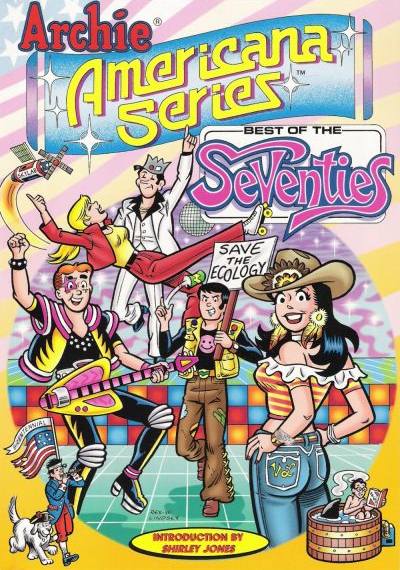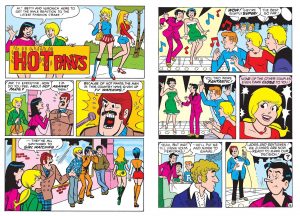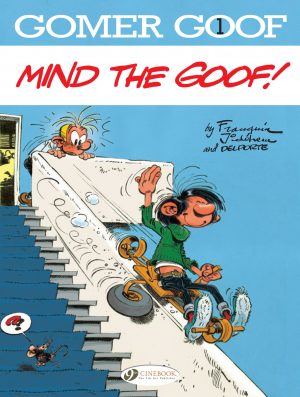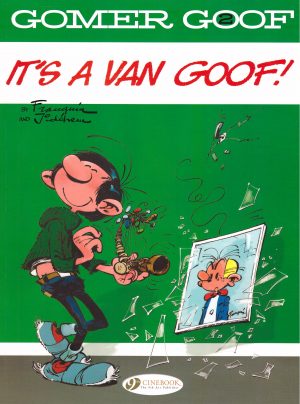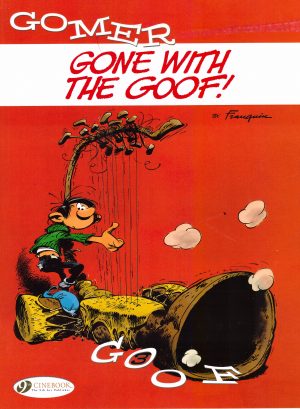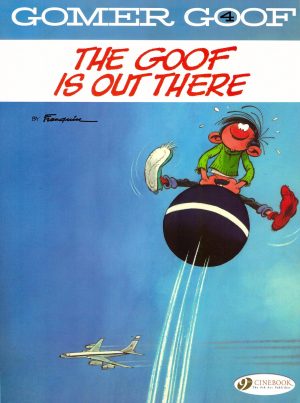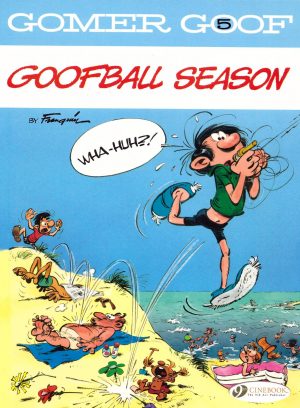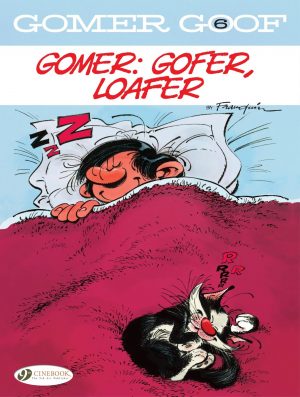Review by Win Wiacek
The monolith of wholesome fun that is Archie Comics was fully cemented within American popular culture by the 1970s. While red-haired archetype (and the company that created him) dominated the humour comic market, Archie was further known for animated TV shows, the pop single Sugar, Sugar, and soon a chain of restaurants.
This volume concentrates on 1970s fashions and fads, as well as the ever-widening divide between rebellious teens and oppressive adults. It also delightfully shows the overwhelming power of good writing and brilliant art to captivate an audience of any age.
Following a poetic introduction from actress Shirley Jones, the merriment kicks off with 1970’s ‘Protest’ by Frank Doyle and Samm Schwartz, an ever-more frantic Archie desperate to join the national wave of teen rebellion, but unable to find anything to dissent over or anyone angry enough to march with him.
George Gladir and Dan DeCarlo apply wry observation in regaling us with Riverdale’s response to daring new fashion must-have ‘Hot Pants’ (sample art left), after which ‘Decisions, Decision’ by Doyle and Harry Lucey deliciously reveals how that Archie-Betty-Veronica quandary keeps going. 1972’s content kicks off with Bill Vigoda pencilling the anonymously written ‘Bubble Trouble’, then reveals how with the help of a certain legendary star, garage band the Archies disprove media accusations of being merely a bubblegum band.
Doyle and Lucey supply ‘The Late Archie Andrews!’ as desperate Principal Weatherbee goes to outrageous lengths to ensure Archie arrives at school on time, and the wackiness continues with ‘Patch Match’. Gladir and DeCarlo detail how Betty monopolises that Andrews boy by offering to sew onto his jacket all the cool badges he’s been collecting. Veronica of course responds with all the wealth in her arsenal.
‘Loyalville, USA’ by Doyle and DeCarlo has Betty and Archie help out the town’s worst memorabilia vendor, whilst Gladir and Goldberg end 1974 proving there’s ‘No Fuel Like an Old Fuel’. It’s saving gas during an energy crisis that lands Archie and Jughead in trouble.
The most affecting tale is Doyle and DeCarlo’s ‘You Came a Long Way, Baby’, dramatically teaching the condescending Betty and Veronica the progress in gender equality old maid Miss Grundy has been responsible for at Riverdale High. Gladir and DeCarlo’s ‘Bicentennial Banter’ sees those same girls teach the boys about the female contributions and the decisive roles played by women during the American Revolution while rehearsing for a commemorative school play.
Archie’s eager fondness for CB radio is detailed in ‘Over and Out’ by Doyle and DeCarlo, and by 1977 Archie’s ‘A Fool for Cool’ has him patterning his dating techniques on the Fonz from TV phenomenon Happy Days. It’s sadly uncredited.
Gladir and DeCarlo’s ‘Video Vexation’ has Betty and Veronica losing their place as the boys’ abiding passion once Pop Tate installs a computer arcade system, after which Star Wars gets thoroughly spoofed in ‘Costume Caper’ with Lapick adding his inking sheen to Gladir & DeCarlo’s smart rib-tickler.
1979’s ‘Melvin’s Angels’ by Doyle and DeCarlo then sees Betty and Veronica undertaking a bruising mission for a mystery man on a speaker phone before the glitzy glamour-era comics celebration concludes with ‘Disco Dude’ (sample art right) as a big food prize entices slovenly slowpoke Jughead to display his amazing dance moves.
These charming and comfortable yarns are a gentle delight, and a neglected area of graphic narrative. It would benefit us all to take another look at what they have to offer. If only to see how far fashion has not come. All stories were later incorporated into The Best of Archie Americana: The Silver Age. Best of the Seventies Book 2 follows.
